Sofia Michel
Multi-Agent Path Finding with Real Robot Dynamics and Interdependent Tasks for Automated Warehouses
Aug 26, 2024Abstract:Multi-Agent Path Finding (MAPF) is an important optimization problem underlying the deployment of robots in automated warehouses and factories. Despite the large body of work on this topic, most approaches make heavy simplifications, both on the environment and the agents, which make the resulting algorithms impractical for real-life scenarios. In this paper, we consider a realistic problem of online order delivery in a warehouse, where a fleet of robots bring the products belonging to each order from shelves to workstations. This creates a stream of inter-dependent pickup and delivery tasks and the associated MAPF problem consists of computing realistic collision-free robot trajectories fulfilling these tasks. To solve this MAPF problem, we propose an extension of the standard Prioritized Planning algorithm to deal with the inter-dependent tasks (Interleaved Prioritized Planning) and a novel Via-Point Star (VP*) algorithm to compute an optimal dynamics-compliant robot trajectory to visit a sequence of goal locations while avoiding moving obstacles. We prove the completeness of our approach and evaluate it in simulation as well as in a real warehouse.
GOAL: A Generalist Combinatorial Optimization Agent Learner
Jun 21, 2024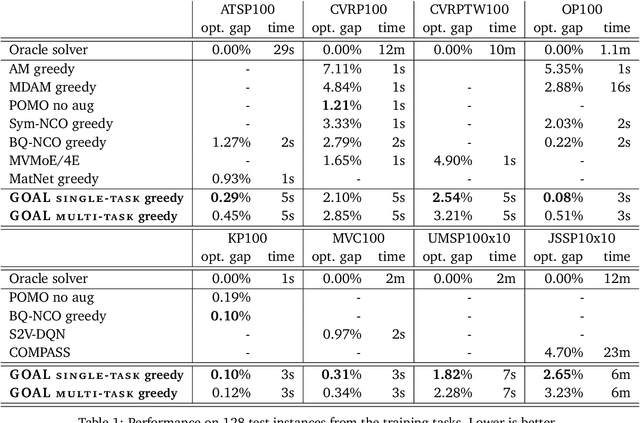
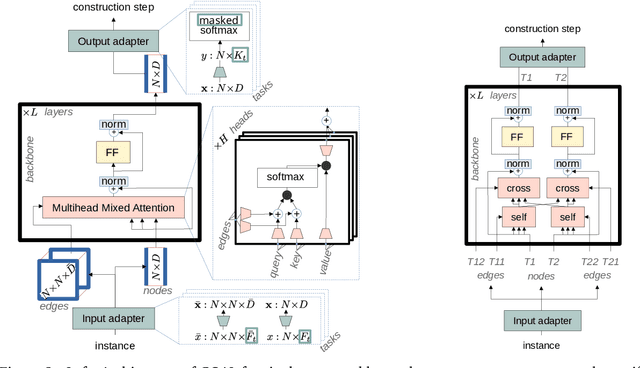
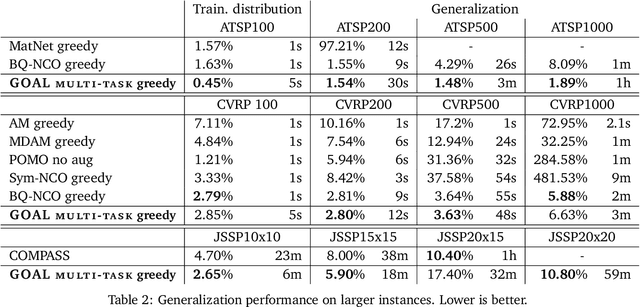
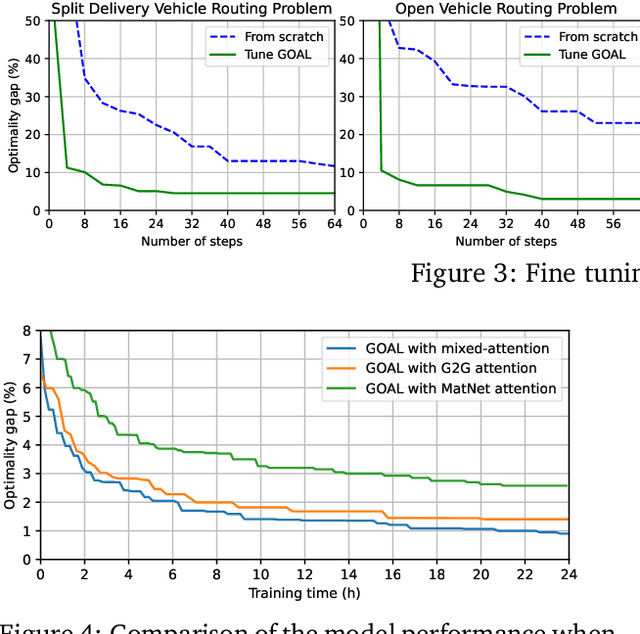
Abstract:Machine Learning-based heuristics have recently shown impressive performance in solving a variety of hard combinatorial optimization problems (COPs). However they generally rely on a separate neural model, specialized and trained for each single problem. Any variation of a problem requires adjustment of its model and re-training from scratch. In this paper, we propose GOAL (for Generalist combinatorial Optimization Agent Learning), a generalist model capable of efficiently solving multiple COPs and which can be fine-tuned to solve new COPs. GOAL consists of a single backbone plus light-weight problem-specific adapters, mostly for input and output processing. The backbone is based on a new form of mixed-attention blocks which allows to handle problems defined on graphs with arbitrary combinations of node, edge and instance-level features. Additionally, problems which involve heterogeneous nodes or edges, such as in multi-partite graphs, are handled through a novel multi-type transformer architecture, where the attention blocks are duplicated to attend only the relevant combination of types while relying on the same shared parameters. We train GOAL on a set of routing, scheduling and classic graph problems and show that it is only slightly inferior to the specialized baselines while being the first multi-task model that solves a variety of COPs. Finally, we showcase the strong transfer learning capacity of GOAL by fine-tuning or learning the adapters for new problems, with only few shots and little data.
BQ-NCO: Bisimulation Quotienting for Generalizable Neural Combinatorial Optimization
Jan 12, 2023Abstract:Despite the success of Neural Combinatorial Optimization methods for end-to-end heuristic learning, out-of-distribution generalization remains a challenge. In this paper, we present a novel formulation of combinatorial optimization (CO) problems as Markov Decision Processes (MDPs) that effectively leverages symmetries of the CO problems to improve out-of-distribution robustness. Starting from the standard MDP formulation of constructive heuristics, we introduce a generic transformation based on bisimulation quotienting (BQ) in MDPs. This transformation allows to reduce the state space by accounting for the intrinsic symmetries of the CO problem and facilitates the MDP solving. We illustrate our approach on the Traveling Salesman, Capacitated Vehicle Routing and Knapsack Problems. We present a BQ reformulation of these problems and introduce a simple attention-based policy network that we train by imitation of (near) optimal solutions for small instances from a single distribution. We obtain new state-of-the-art generalization results for instances with up to 1000 nodes from synthetic and realistic benchmarks that vary both in size and node distributions.
On the Generalization of Neural Combinatorial Optimization Heuristics
Jun 01, 2022


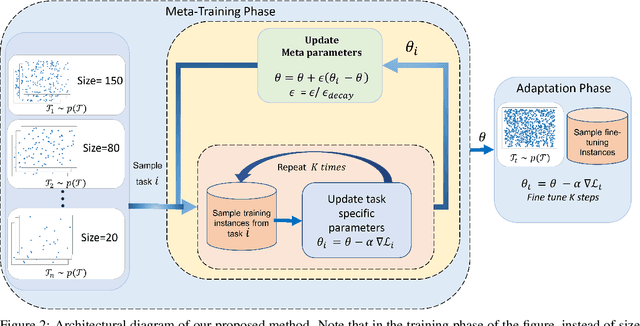
Abstract:Neural Combinatorial Optimization approaches have recently leveraged the expressiveness and flexibility of deep neural networks to learn efficient heuristics for hard Combinatorial Optimization (CO) problems. However, most of the current methods lack generalization: for a given CO problem, heuristics which are trained on instances with certain characteristics underperform when tested on instances with different characteristics. While some previous works have focused on varying the training instances properties, we postulate that a one-size-fit-all model is out of reach. Instead, we formalize solving a CO problem over a given instance distribution as a separate learning task and investigate meta-learning techniques to learn a model on a variety of tasks, in order to optimize its capacity to adapt to new tasks. Through extensive experiments, on two CO problems, using both synthetic and realistic instances, we show that our proposed meta-learning approach significantly improves the generalization of two state-of-the-art models.
 Add to Chrome
Add to Chrome Add to Firefox
Add to Firefox Add to Edge
Add to Edge